Call Centre
Learn how call centre software works and how Beyontel can help
you partner with the right provider to get you the results you need
What Is Call Centre Software?
Call centre software is a specialized type of cloud-based business communication software that is made to streamline processes conducted through call centres. Call centre software can optimize call flows, automate business processes, and allow customers to get better and faster assistance through a variety of unique features.
If your call centre is experiencing overwhelming call volumes, inefficient processes, and unnecessary errors that leave customers unsatisfied, you may consider implementing call centre software. Beyontel can help you choose the right provider for your needs so that you can get the right features at the right price.
Sign up for Beyontel today to get started and see how the right call centre software can drastically improve your business’s productivity and your customers’ satisfaction. If you want help choosing a business VoIP provider or determining which features you need, sign up for Beyontel to get quality advice on the matter.
Types of Call Centre Software
Call centre software can be divided into three groups based on the three main types of call centres: inbound, outbound, and blended. The type you use will depend on your business’s needs and the provider you partner with.
Oftentimes, a single business may use multiple types of call centres, especially if the business is big enough. Many providers offer software systems for all types and can work with you to determine the best solution for your situation.
Inbound
Inbound call centers are used to receive incoming calls from existing and potential customers.They may provide things like:
- Customer service and support
- Product recommendations
- Taking orders
- Making appointments
- Collecting account payments
- Assisting with account management
Inbound call centre software will help streamline these processes to make them more efficient and effective.
Outbound
Outbound call centres are used for sales representatives and other staff members to make outgoing calls to existing or potential customers. Telemarketing, for example, is often done through outbound call centres. The types of calls that are conducted in these call centres may include:
- Sales and lead generation
- Marketing
- Fundraising
- Surveys
- Raising awareness about a product, service, or campaign
Blended
Blended call centres exist to provide a combination of both inbound and outbound calls. They are often used to increase efficiency and productivity and are especially useful for businesses who don’t have the size and call volume necessary to create separate inbound and outbound centres.
Blended call centres can be challenging because the sheer variety of calls they’re used for can be hard to manage and organize. Fortunately, call centre software can help automate many of the processes involved with directing calls and ensuring the right information is getting communicated during each call.
Benefits of Using Call Centre Software
Caller ID
Interactive Voice Response (IVR)
CRM Integration
Customer relationship management, or CRM, integration allows third-party CRM tools to be added to call centre software. With CRM integration, pop-ups including a caller’s information can automatically appear on an agent’s CRM screen during a call, eliminating the need for an agent to pause the call to pull up information and synchronize data between different applications.
With proper CRM integration, agents can be better prepared to answer a call, and callers won’t have to repeat information they’ve already given to your company before.
Reporting and Analytics
Call centre software frequently comes with built-in, real-time and historical analytics that can track call centre activity and provide valuable insights that can help you continue to improve your processes further down the line.
Whether you want to use pre-made report templates or completely customize them, call centre software reporting can track KPIs and have analytics and reports automatically sent to users at preset intervals.
Automated Callbacks
There’s nothing more frustrating for callers than to be put on an extended hold just to get a quick question answered or to update a small piece of information in their account. With automated callbacks, customers can avoid going on hold and schedule a time they’d like to receive a callback based on their preferred time and date.
Call Queuing
An absolute must for any business dealing with high call volumes, call queuing allows several callers to wait on hold until the next free agent is available to help them.
You can set up call queuing to be need-based, time-based, VIP-based, or in any other order you choose. A properly functioning call-queuing system helps reduce the number of customer callbacks and improve the speed and efficiency in which customers are helped.
Omnichannel Routing
When multiple channels of communication are used, things can quickly get confusing and disorganized — which leads to lower productivity from your agents and lower satisfaction from your customers.
With omnichannel routing, the most recent customer communications are synced across channels, allowing conversations to pick up where they left off, even if another communication channel or agent takes over.
Call centre software frequently comes with built-in, real-time and historical analytics that can track call centre activity and provide valuable insights that can help you continue to improve your processes further down the line.
Whether you want to use pre-made report templates or completely customize them, call centre software reporting can track KPIs and have analytics and reports automatically sent to users at preset intervals.
Benefits of Using Call Centre Software
Service Level Agreement (SLA)
A service level agreement, or SLA, is a contract between the customer and service provider that clearly outlines the expected services and guarantees. This is important to protect both parties in the agreement.
An SLA will commonly include:
- A list of features the software provides
- Security and compliance details
- Contract length
- Billing details and other costs
- Guaranteed uptime
- Penalties if the provider does not meet the guarantees of the SLA
- Any exclusions that exempt a provider from these penalties
High Security
Although no guarantee can create foolproof protection against all security breaches, a good call centre software provider will have high security standards that ensure your data is protected as much as possible.
The security standards all can centre software providers should have include:
- End-to-end encryption
- SRTP, TLS, and AES encryption
- Frequent third-party security audits
- Two-factor authentication (2FA)
- GDPR, PCI, and HIPAA compliance
Guaranteed Uptime of Over 99.9%
When you’re dealing with software that is part of the foundation of your business’s communication system, it’s extremely important that it doesn’t experience any outages or downtime.
Most good call centre software providers will guarantee an uptime of at least 99%, but if you really want to ensure the highest quality and reliability, you should choose a provider that guarantees 99.9% uptime.
For reference, a 99% uptime guarantee will give you a maximum of 3 days, 15 hours, 39 minutes, and 29 seconds of downtime per year, while a 99.9% uptime guarantee gives you 8 hours, 45 minutes, and 56 seconds of downtime a year.
For even stronger reliability, a 99.99% uptime guarantee gives you just 52 minutes and 15 seconds of downtime a year.
Want to guarantee the best mix of features, uptime, security, and outbound and inbound services? Sign up for Beyontel to get expert advice on which call centre software vendor fits your needs.
Get the Best Call Centre Software Solutions for Your Business With Beyontel
Use our QuoteMatch Tool to get started with Business VoIP.
Instant quotes from top providers:







